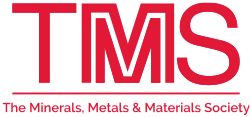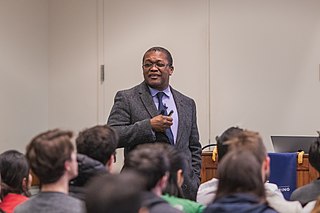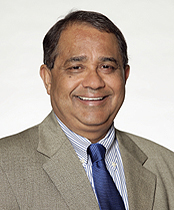The Hall–Héroult process is the major industrial process for smelting aluminium. It involves dissolving aluminium oxide (alumina) in molten cryolite, and electrolyzing the molten salt bath, typically in a purpose-built cell. The Hall–Héroult process applied at industrial scale happens at 940–980 °C and produces 99.5–99.8% pure aluminium. Recycled aluminum requires no electrolysis, thus it does not end up in this process.

Scrap consists of recyclable materials, usually metals, left over from product manufacturing and consumption, such as parts of vehicles, building supplies, and surplus materials. Unlike waste, scrap has monetary value, especially recovered metals, and non-metallic materials are also recovered for recycling. Once collected, the materials are sorted into types — typically metal scrap will be crushed, shredded, and sorted using mechanical processes.

The recycling of paper is the process by which waste paper is turned into new paper products. It has a number of important benefits: It saves waste paper from occupying homes of people and producing methane as it breaks down. Because paper fibre contains carbon, recycling keeps the carbon locked up for longer and out of the atmosphere. Around two-thirds of all paper products in the US are now recovered and recycled, although it does not all become new paper. After repeated processing the fibres become too short for the production of new paper, which is why virgin fibre is frequently added to the pulp recipe.

Material efficiency is a description or metric (Mp) (the ratio of material used to the supplied material) which refers to decreasing the amount of a particular material needed to produce a specific product. Making a usable item out of thinner stock than a prior version increases the material efficiency of the manufacturing process. Material efficiency goes hand in hand with Green building and Energy conservation, as well as other ways of incorporating Renewable resources in the building process from start to finish.

Aluminium recycling is the process by which scrap aluminium can be reused in products after its initial production. The process involves simply re-melting the metal, which is far less expensive and energy-intensive than creating new aluminium through the electrolysis of aluminium oxide, which must first be mined from bauxite ore and then refined into aluminium oxide using the Bayer process and then refined again into aluminium metal using the Hall–Héroult process.

Novelis Inc. is an American industrial aluminum company, headquartered in Atlanta, Georgia, United States. It is an independent subsidiary of multinational aluminium and copper manufacturing company Hindalco Industries. Novelis is a producer of rolled aluminum and an aluminum recycler. The company serves customers in sectors including beverage cans, automotive, aerospace, consumer electronics, construction, foil and packaging.

The Minerals, Metals & Materials Society (TMS) is a professional organization for materials scientists and engineers that encompasses the entire range of materials and engineering, from minerals processing and primary metals production to basic research and the advanced applications of materials.
Tobin Jay Marks is an inorganic chemistry Professor, the Vladimir N. Ipatieff Professor of Catalytic Chemistry, Professor of Material Science and Engineering, Professor of Chemical and Biological Engineering, and Professor of Applied Physics at Northwestern University in Evanston, Illinois. Among the themes of his research are synthetic organo-f-element and early-transition metal organometallic chemistry, polymer chemistry, materials chemistry, homogeneous and heterogeneous catalysis, molecule-based photonic materials, superconductivity, metal-organic chemical vapor deposition, and biological aspects of transition metal chemistry.

Natural resource economics deals with the supply, demand, and allocation of the Earth's natural resources. One main objective of natural resource economics is to better understand the role of natural resources in the economy in order to develop more sustainable methods of managing those resources to ensure their availability for future generations. Resource economists study interactions between economic and natural systems, with the goal of developing a sustainable and efficient economy.
Coal was discovered in Kentucky in 1750. Since the first commercial coal mine opened in 1820 coal has gained both economic importance and controversy regarding its environmental consequences. As of 2010 there were 442 operating coal mines in the state, and as of 2017 there were fewer than 4,000 underground coalminers.
Constellium SE is a global manufacturer of aluminium rolled products, extruded products, and structural parts based on a large variety of advanced alloys. Constellium's C-TEC research center has been credited for advancing technology in the field of advanced aluminium alloy. Constellium primarily serves the aerospace, automotive, and packaging sectors. Large clients include Mercedes-Benz, Audi, BMW, Fiat Chrysler Automotive, Ford, Airbus, Boeing, and Bombardier.
Spent Potlining (SPL) is a waste material generated in the primary aluminium smelting industry. Spent Potlining is also known as Spent Potliner and Spent Cell Liner.

Veena Sahajwalla is an inventor and Professor of Materials Science in the Faculty of Science at UNSW Australia. She is the Director of the UNSW SM@RT Centre for Sustainable Materials Research and Technology and an Australian Research Council Laureate Fellow.
Yue Qi is a Chinese-born American nanotechnologist and physicist who specializes in computational materials scientist at Brown University. She won the 1999 Feynman Prize in Nanotechnology for Theory along with William Goddard and Tahir Cagin for "work in modeling the operation of molecular machine designs."

Aircraft recycling is the process of scrapping and disassembling retired aircraft, and re-purposing their parts as spare parts or scrap. Airplanes are made of around 800 to 1000 parts that can be recycled, with the majority of them made from metal alloys and composite materials. The two most common metal alloys are aluminum and titanium and the main composite material is carbon fiber.
Isabel C. Escobar is a professor in the Department of Chemical and Materials Engineering at the University of Kentucky in Lexington, Kentucky. She is also associate director of the Center of Membrane Sciences and co-director of the College of Engineering Undergraduate Research Scholars Program, both at the University of Kentucky.

Margaret Mary Hyland is a Canadian-born chemist based in New Zealand whose research focuses on aluminium technology, and the chemistry and engineering of material surfaces. She moved to New Zealand in 1989 and after holding many senior academic leadership roles supporting and developing research at the faculty, university and national level became recognised as an authority on the generation and capture of fluoride emissions from aluminium smelters and for coordinating the team that produced the 'Fluoride Emissions Management Guide' for the aluminium industry. This achievement was acknowledged when she became the first woman to win the Pickering Medal. In 2017, Hyland was seconded to the Ministry of Business, Innovation and Employment in the role of Chief Scientist and has held positions in a variety of other groups supporting the physical sciences and engineering. Since 2018 she has been Vice-Provost, (Research) at Victoria University of Wellington, New Zealand.

Lynden A. Archer is a chemical engineer, Joseph Silbert Dean of Engineering, David Croll Director of the Energy Systems Institute, and professor of chemical engineering at Cornell University. He became a fellow of the American Physical Society in 2007 and was elected into the National Academy of Engineering in 2018. Archer's research covers polymer and hybrid materials and finds applications in energy storage technologies. His h-index is 92 by Google Scholar.
Ellen K. Cerreta is a materials scientist at Los Alamos National Laboratory, working to provide materials science and technology solutions for national security missions. She is Fellow of ASM International.
Elizabeth A. Holm, Richard F. and Eleanor A. Towner Professor of Engineering, is chair of the Department of Materials Science and Engineering, University of Michigan. Her research focus is computational materials. She worked at Sandia National Laboratories for 20 years before joining the faculty of Carnegie Mellon in 2012. She is a Fellow of The Minerals, Metals & Materials Society and Fellow of ASM International. She was the 2013 President of the society. She is internationally known for her theory and modeling work on microstructural response, interfaces, carbon nanotubes, and additive manufacturing.











